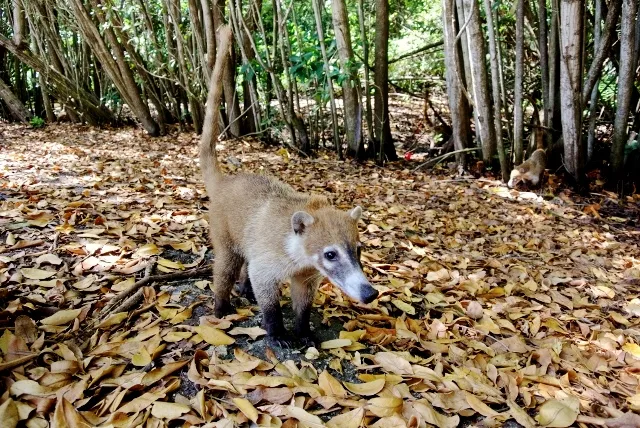Playa del Carmen, Quintana Roo — A prominent real estate developer is under fire after reportedly bulldozing through environmental regulations and federal closure orders to continue clearing protected jungle for a new housing project—threatening the natural habitat of over 200 wildlife species, some of them endangered.
Promotora Residencial, the company behind the Marsella IV residential development, is accused of violating a closure order issued by Mexico’s environmental authority, PROFEPA (Federal Attorney for Environmental Protection), on Wednesday. Despite the official seals halting the project, work reportedly continued unabated, with heavy machinery operating on-site and trees being felled as if no restrictions were in place.
The closure was prompted by a complaint from Cenotes Urbanos, a local environmental group led by biologist and speleologist Roberto Rojo. According to Rojo, the company grossly misrepresented its environmental impact assessment—claiming the project site was home to just five wildlife species. Independent surveys by Cenotes Urbanos found more than 200 species in the area, including birds, amphibians, reptiles, and mammals, many of which are listed as threatened or endangered. Among the most concerning discoveries was the endangered blind swamp eel (Ophisternon infernale), a species endemic to the region’s cenotes.
Rojo warns that the destruction of the forested habitat could drive displaced wildlife into urban zones, increasing the risk of vehicle collisions or animal deaths—scenarios already observed in other parts of Playa del Carmen like Playacar.
The company’s continued operations in defiance of federal law have raised serious questions about the rule of law in Quintana Roo and the state’s ability—or willingness—to enforce environmental protections. Activists allege that for many developers, paying fines is simply factored into the cost of doing business. “They don’t care about the law,” Rojo said, “because paying a fine is cheaper than losing the development.”
This isn’t the first time environmental concerns have clashed with rapid development in the region. The fragile ecosystems of the Riviera Maya—including cenotes, wetlands, and dense tropical jungle—have repeatedly come under threat from unchecked construction tied to real estate and tourism interests. Critics argue that unless authorities impose meaningful consequences, these violations will continue with impunity.
Rojo emphasized that the movement isn’t anti-development. “We’re not against progress,” he said. “We’re against stupidity disguised as development. We’re asking for smart, sustainable, ecologically responsible projects that preserve the natural heritage of this region.”
For Quintana Roo, whose economy relies almost entirely on its appeal as a natural paradise, the stakes are high. “How can we keep promoting eco-tourism when there’s no ‘eco’ left?” Rojo asked. “What will we sell when the jungle is gone, the cenotes are polluted, and the wildlife has vanished?”
He and others are calling for decisive action—not just symbolic closures, but criminal and civil consequences that send a clear message to developers who violate the law.
As the Marsella IV project barrels forward, environmental defenders are urging both local and federal authorities to step up and protect the very ecosystems that sustain life—and livelihoods—in the Riviera Maya. Without stronger enforcement, they warn, the region’s future may be cleared away one tree at a time.
Discover more from Riviera Maya News & Events
Subscribe to get the latest posts sent to your email.
